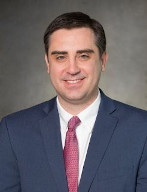Tom is a leader in environmental litigation and regulatory compliance with experience in contract, tort, enforcement and construction litigation involving solid waste, hazardous waste, petroleum, biosolids, wastewater, land contamination and climate change. Tom has significant experience navigating solid and water waste controversies for solid waste and recycling companies, utilities, cities and contractors, and gasoline contamination controversies emanating from stations and underground storage tanks.
In addition to experience with superfund litigation, Tom has extensive experience on brownfields redevelopment and cleanup under CERCLA, RCRA and state voluntary cleanup and brownfields programs. Tom has served as environmental counsel to the largest brownfield redevelopment project in Maryland—the redevelopment of the former Bethlehem Steel site. Tom speaks nationally on effective reuse and development of Brownfields.
Tom has broad experience with large and complex projects involving traditional energy, renewable energy and infrastructure matters. In 2017, he played a critical role in litigation pertaining to the application for offshore wind renewable energy credits and advises on Maryland Certificate of Public Use and Necessity applications, particularly for solar. He served as 2018-2019 Chairperson of the Maryland State Bar Association Environmental and Energy Law Section, during which time the Section focused on challenges posed by Maryland’s increased renewable energy portfolio standards when considering available land after accounting for zoning and interconnectivity.
Tom also has substantial experience on federal preemption of state environmental laws. By way of a few examples, Tom represents a petroleum company in climate change tort litigation brought by the City of Baltimore, advancing arguments that local torts are preempted by federal law when applied to climate change policy and liability. Tom was involved in fighting Maryland’s attempt to veto the relicensing of a hydroelectric dam under Section 401 of the Clean Water Act—an issue recently addressed by the Supreme Court of the United States that involves statutory interpretation with preemption themes. This work also provided in-depth experience with the Chesapeake Bay basin total maximum daily load requirements and segmented state implementation plans, particularly as related to sediment, nitrogen and phosphorous. Tom’s preemption experience extends to natural gas pipelines and electric transmission.
Through his National Environmental Policy Act ("NEPA") and brownfield experience, as well as through his role as a Baltimore City Planning Commissioner, Tom deeply understands the art of public engagement and messaging to avoid controversy, cost and delay. Tom has advised clients on NEPA compliance and effective public engagement and has also counseled clients on how to bring a NEPA (or state equivalent) challenge.
Tom is an adjunct law professor at the University of Maryland Francis King Carey School of Law in the Environmental Certificate Program and teaches state and local environmental law. Through his class, Tom provides students with environmental practice skills, including exposure to experts on fate and transport, toxicology and causation and the operations of critical facilities, such as power plants, wastewater treatment plants and landfills. Tom has written on the use and admissibility of expert evidence, particularly in the environmental, land use and property valuation contexts and played a critical role in two leading Maryland cases on the admissibility of expert testimony. Tom also has lectured on lesser known environmental torts and damages, such as fear of contracting future disease, medical monitoring, loss of use and enjoyment and stigma damages.
Tom played a key role in the trial and appeal of the largest mass tort environmental case in Maryland history—a $1.5 billion dollar verdict relating to the release of 26,000 gallons of gasoline from a station in Baltimore County. Based on experience in Washington, D.C. working for the former head of the Office of Foreign Asset Control (OFAC), Tom also counsels clients on OFAC/trade sanctions compliance.

